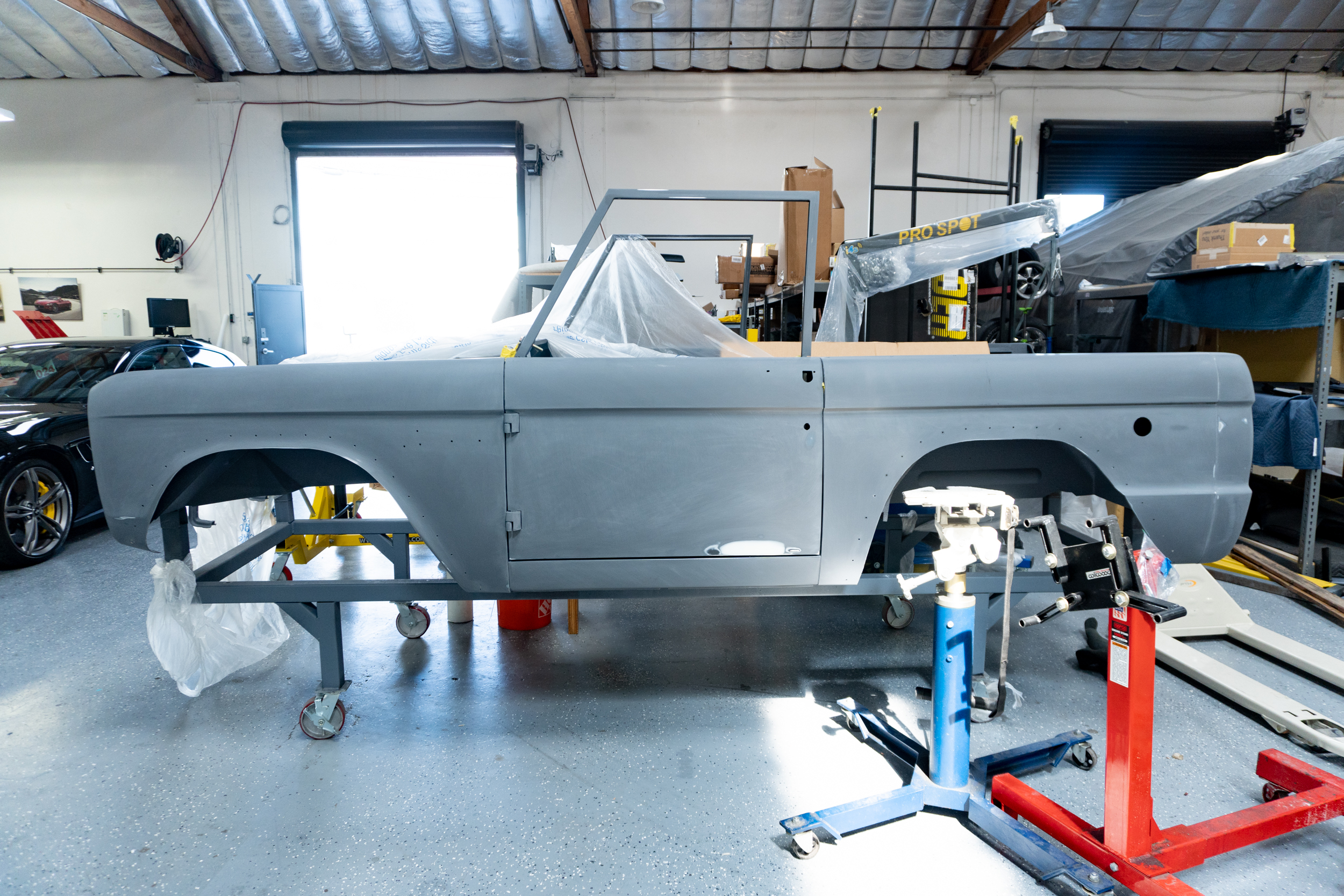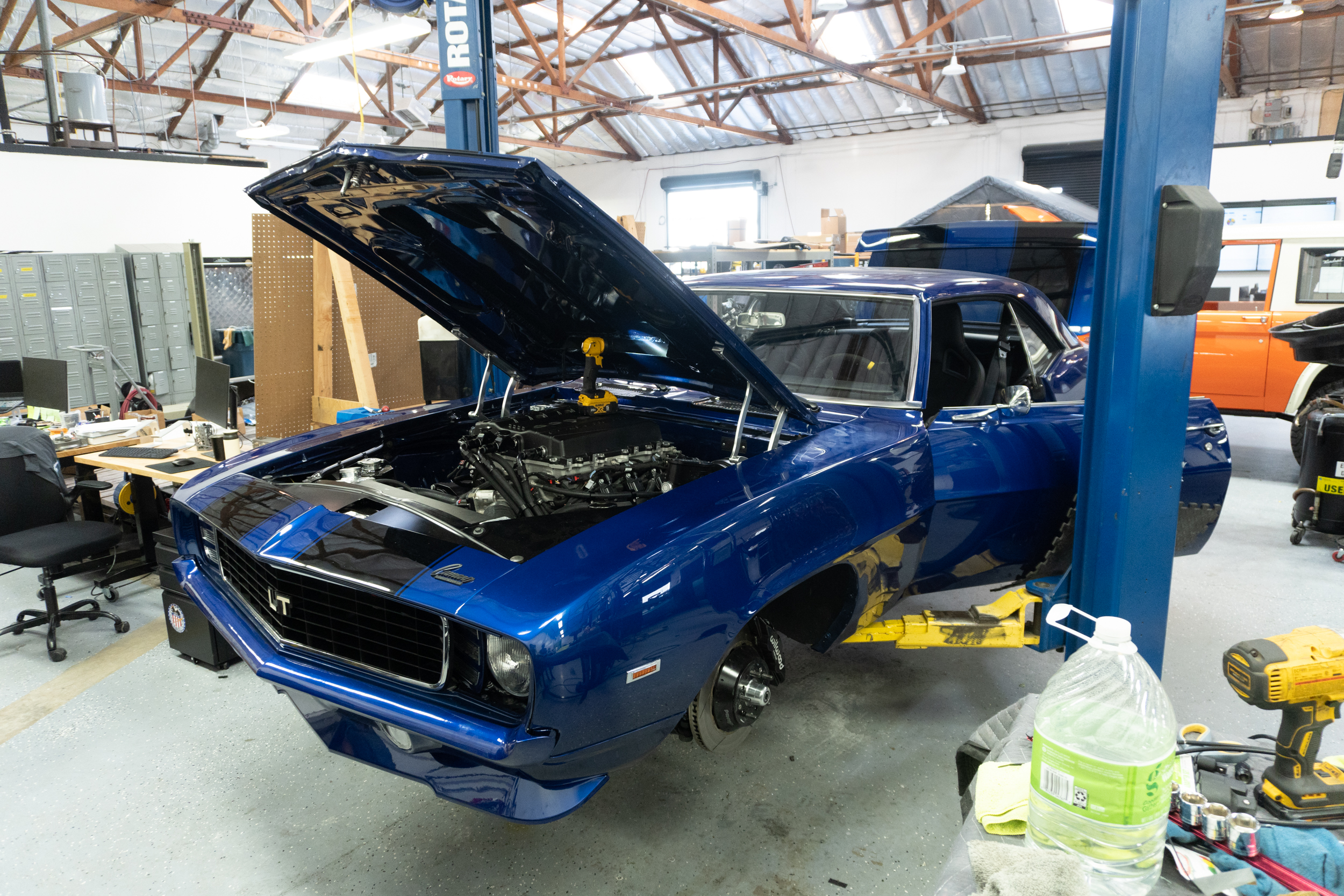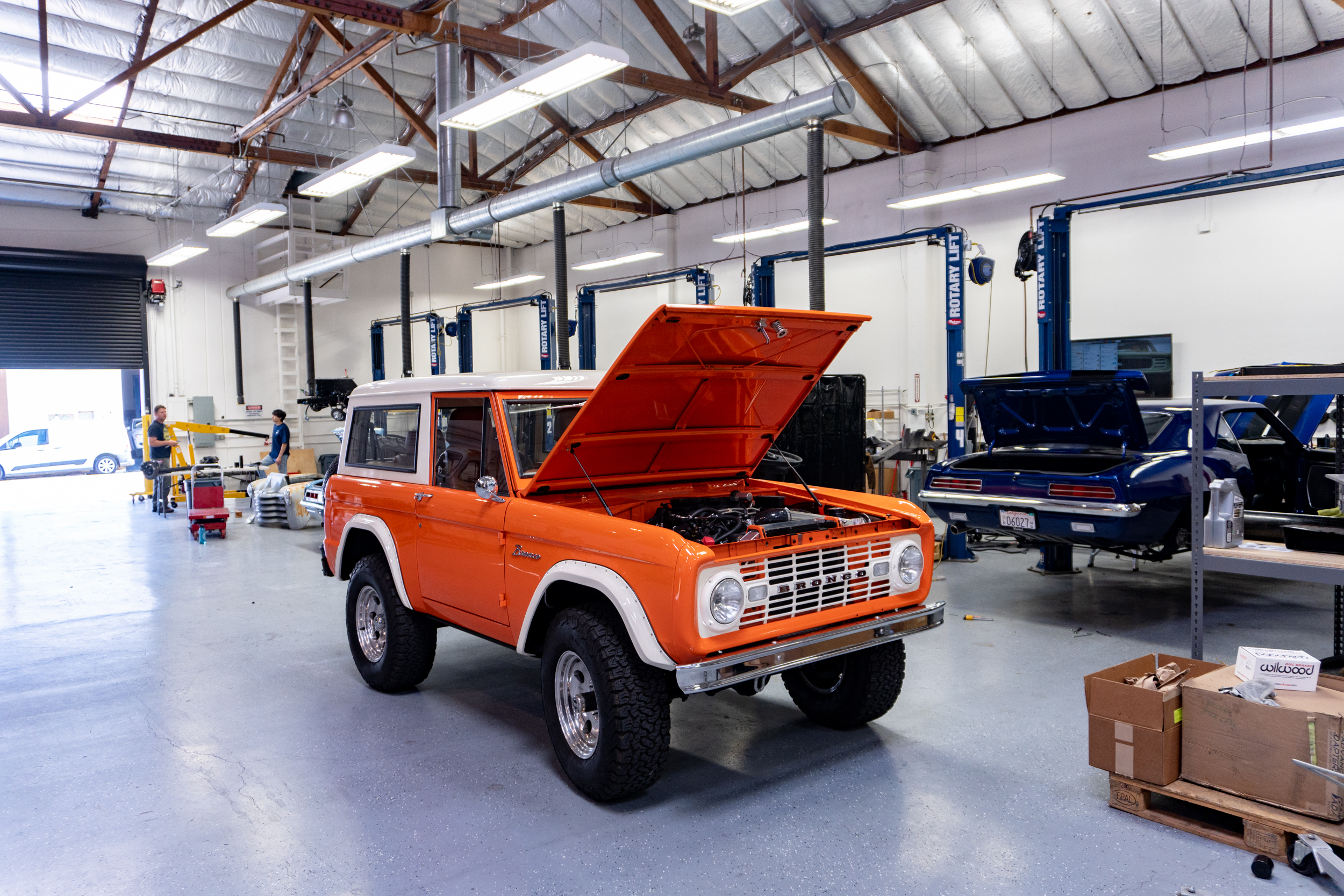Owners of vintage cars know the deal. The “project” is never done and driving an old vehicle means dealing with mechanical failures, encroaching rust, old wiring shorting out and the continual hit to a bank account. For some, that’s part of the allure: a neverending labor of love that includes the joy of a weekend spent replacing a starter or rewiring the brake lights.
For others though, the desire for an old vehicle – whether for sentimental, aesthetic, or historical reasons – is squelched by the nonstop maintenance. For that latter group of people, there’s Kindred Motorworks, a new restomod startup based in Northern California that takes sought-after old vehicles and infuses them with new powertrains, safety features and other modern-day touches.
The restomod business isn’t really new. But Rob Howard, the CEO and founder of Kindred, which had its public debut during Monterey Car Week, says their tech-focused approach puts the startup in an entirely different lane than the competition.
Their method provides an intriguing glimpse into how today’s technology can benefit the public desire for vintage items that work better than they did when they were new.
It’s a strategy that has helped Kindred Motorworks raise more than $20 million through its first two funding rounds. It raised $5 million at the end of 2020 and another $15.6 million at the end of 2021. It has attracted a number of high-profile investors, including Hagerty, a company known for vintage vehicles and one of the country’s largest insurance providers for those vehicles, and Robert Downey, Jr’s Footprint Coalition. Other backers include CPMG, Goldcrest and Fifth Down Capital.
Those funds will support the company as it works towards full production in 2024.
The teardown and blueprint
Kindred stands out from the hundreds (potentially thousands) of shops that restore old vehicles through its standardized process that begins by handpicking a vintage car, truck or SUV and then tearing down and mapping every inch. The company then takes this blueprint and uses it for every part of the rebuild process from parts sourcing and procurement to final assembly
The aim is to take an arduous, long and expensive process and make it efficient, repeatable and at scale.
“I knew we could apply technology and scale to this and make it much more efficient,” Howard told TechCrunch.
On the lift in Kindred’s shop is the frame of a Chevy 3100, a pickup popular with vintage vehicle enthusiasts that was in production from the late 1940s until the late 1950s. Howard says this truck has already been stripped down and rebuilt multiple times and will go through the process again and again.
According to Howard, this will lead to a very detailed step-by-step process or blueprint that will be used to rebuild 3100s with electric powertrains that will be sold to customers.
The system will include how-to videos for every step, which may seem like overkill, but will result in the vehicles being built exactly the same every time.
It will also allow employees without the deep technical know-how to jump into the build process and learn on the job. When a person clocks in, they’ll be assigned a task for the day based on their experience at an already stocked station. Most restoration shops are staffed with people who have a master mechanic-level knowledge about the vehicle and cars in general.
Under the Kindred model, the master mechanic is still there, but they no longer need to micromanage the entire build. All of this is controlled in real-time by a tracking system built by Kindred.
The end product will be a modern vintage vehicle with either an electric powertrain or gas engine outfitted with safety features, including disc brakes, 3-point seat belts, headrests, upgraded steering and LED headlights. Airbags are not included. The vehicles will also be equipped with a Bluetooth infotainment with integrated rear view camera.
The EV versions will be equipped with batteries that can travel about 200 miles, or possibly longer, in a single charge, according to its website.
Tech nerds that are car nerds
This isn’t a group of individuals that saw the prices of vehicles skyrocketing in the past few years and decided to pivot to cars. Howard himself has been restoring cars for 20 years. His latest project took him four years to complete and he immediately found all the things that didn’t work.
That’s a typical restoration experience. Because each vehicle is essentially a one-off project it’s tough to determine what will and won’t work as you’re building up until it’s complete. The group figured their experience would allow them to streamline the process and result in better vehicles.
Howard, a serial entrepreneur, said the core group of people at Kindred have collaborated on his previous companies. These core employees worked at Ensenda, a third-party logistic provider that was sold to Transforce in 2013, and a SaaS same-day delivery enterprise called Grand Junction that was sold to Target in 2017. After working for the giant retailer for three years, they decided to move towards a passion project.
Other members of the company race in the regional 24 Hours of Lemons, a tongue-in-cheek race that spoofs the world famous 24 hours of Le Mans. Instead of multi-million race teams, the entrants are supposed to buy a $500 car and fix it up. The result is a spectacle that’s less about race and more about the weird car culture.
The Vehicles
Kindred has three vehicles available for pre-order, all of which can be reserved with a $1,000 deposit.
The company will restore and sell Volkswagen microbuses starting at $199,000. It will also offer a vintage Ford Bronco, which is available with either a V8 or electric powertrain and starts at $169,000, as well as the late 1960s Camaro, which is also available with a V8 or electric powertrain. The Camaro will start at $149,00 for the LS and $199,000 for the LT.
To keep the system humming along, there are options that can be added to the vehicles, but there will be no custom builds.
There are plenty of shops out there that’ll do that and Howard noted that after some of the vehicles leave the shop, they’ll likely be customized by their new owners.
These are not cheap vehicles. In fact, most restored vintage vehicles are incredibly expensive regardless if they’re built by a team or an individual. While Kindred has streamlined the process, they’re still building these vehicles by hand.
But the company is offering something most local shops won’t, a warranty.
Post-build life
The company will offer a one-year warranty on all vehicles. It also plans on using service center partners to work on vehicles as needed.
“We know these cars and we have access to all the parts we know exactly how they go together. So we’re better situated than anybody to service these cars,” Howard said.
Kindred, which has 30 employees and is located in Marin County, is in growth mode. Howard said the company will be moving to a larger facility across the bay and by the end of 2024 expects to have 300 employees. A lot of them will be entry-level technicians.
There’s no shortage of people selling a business for a ton of money and then starting a passion project.
The Kindred team has done exactly that, but it’s infusing it with decades of supply chain and retail know-how to change the way people buy vintage vehicles.
For anyone who has ever been to a car show and seen the sea of old cars and the hundreds of onlookers, knows that Kindred just might have a chance to succeed.
[gallery ids="2375561,2375562,2375563,2375564,2375565,2375566"]


















 English (US) ·
English (US) ·